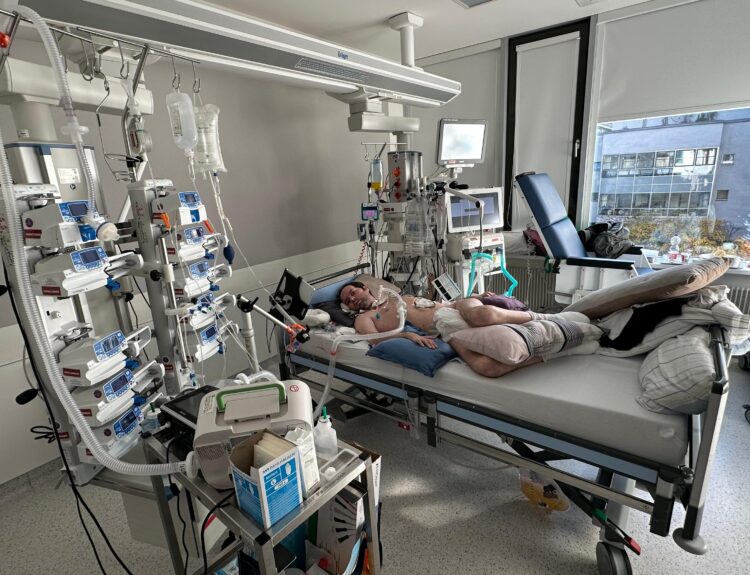Personal outcry against the nursing crisis in out-of-hospital 1:1 care
An experience report that is moving
Imagine you are dependent on help - and suddenly a new carer is standing in front of you, barely trained, unsure, overwhelmed. The induction? Maybe a day, an hour, if that. The documentation? Available, but not read. The consequences? Pain, fear, helplessness - and the feeling of being robbed of your own voice.
When familiarisation becomes a minor matter
You need support, but your speech computer is taken away from you and alternative ways of communicating are ignored. The carer doesn't know how to talk to you, doesn't ask questions, just acts. The result: panic attacks, incorrect medication, hours of pain because nobody has the courage to take responsibility or contact the ophthalmologist. The handover? Not a chance. The next service knows nothing.
Basic care in quick succession
- Flannels, shower gel, water? No way - a few wet wipes will have to do.
- Back and armpits? Are simply forgotten.
- Change your T-shirt? Not worth mentioning. Where are they anyway?
- Sterile suction? In negative record time, but at least with safety in mind.
- Suction mouth and throat: not trivial for an ALS patient with spasticity of the jaw muscles. In other words, opening my mouth for suctioning would have had to be tried out and learnt. The result of a lack of familiarisation: I was not suctioned orally for 12 hours.
- Medication? Only if you insist on it yourself.
- Bandage lens against the hellish pain of a corneal tear, Contact lens with visual acuity so that I can see something, oh well, who knows for sure. The main thing is that it flies out during care and can't be used again. Because hardly anyone can do it and hardly anyone calls for help. Nobody. Not until the next day.
- Storage? Hours in the same position, pressure points included.
- Oral care? A joke - two dry sticks, 40 seconds, done.
Excessive demands and ignorance - everyday life in 1:1 care
The excessive demands on carers are obvious. They don't know where materials are, how to administer medication or how to deal with emergencies. The uncertainty is omnipresent - and it is being carried out on your back.
At this point it should be emphasised that it is not down to the nursing staff. Where is safety supposed to come from when they are doing what they do for the first time? And no one is there to point out mistakes. Sending carers to patients without training is simply gross negligence on the part of the care service. Who is actually liable if something goes wrong?
I find it quite absurd to have to have discussions about my "potentially dangerous" pain medication, over and over again; while we send nursing staff to me without training or sufficient qualifications, who forget to reconnect me to the ventilator after coughing. Again and again.
System failure due to care crisis and bureaucracy
The nursing shortage can no longer be overlooked, especially not in out-of-hospital 1:1 care. Staffing levels are low, training is inadequate and staff turnover is high. The risk for you and others affected is increasing - and with the RISG (Rehabilitation and Intensive Care Strengthening Act) and the IPReG (Intensive Care and Rehabilitation Strengthening Act), the situation threatens to escalate further. Instead of improving care, bureaucratic hurdles are being created that make individual care more difficult and jeopardise your independence.
And yet another political slap in the face of critically ill patients in need of intensive care.
While the self-absorbed, arrogant then Minister of Health Jens Spahn cuts our benefits to the point of no return and would prefer to abolish home care on the one hand...
the same Jens Spahn is burning billions upon billions in his mask scandal. Including millions in commissions for members of the CDU/CSU circle of friends. What a sneaky... Jens Spahn belongs behind bars for his actions, not in the chancellor's office for which he will certainly run (legal notice: personal opinion).
How can it be that there is not even a committee of enquiry? Politics in Germany has become downright ridiculous.
An appeal to you, politics and society
It is not enough to throw dedicated carers into the deep end and hope that they will learn to swim. What is needed:
- In-depth familiarisation and continuous training
- Binding standards for out-of-hospital intensive care
- Appreciation and fair pay for carers
- Less bureaucracy, more humanity
- Involvement of those affected in all decisions
Care must not become a stress test for you
This report is not an isolated case. It stands for many who suffer the consequences of the care crisis on a daily basis. It is time for us to look, listen and act - before even more people lose their voice.
"It's always the same. Either people have to read the documentation - but they don't. Or they need to be properly trained and ideally read the documentation anyway. I mean, why do you as a team leader sit down for hours and days and weeks to create documentation if in the end not even that is read?"






